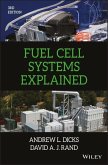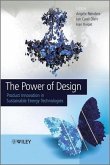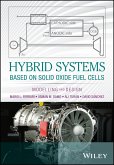A comprehensive survey of theoretical andexperimental concepts in fuel cell chemistry
Fuel cell science is undergoing significant development, thanks, in part, to a spectacular evolution of the electrocatalysis concepts, and both new theoretical and experimental methods. Responding to the need for a definitive guide to the field, Fuel Cell Science provides an up-to-date, comprehensive compendium of both theoretical and experimental aspects of the field.
Designed to inspire scientists to think about the future of fuel cell technology, Fuel Cell Science addresses the emerging field of bio-electrocatalysis and the theory of heterogeneous reactions in fuel cell science and proposes potential applications for electrochemical energy production. The book is thorough in its coverage of the electron transfer process and structure of the electric double layer, as well as the development of operando measurements. Among other subjects, chapters describe:
Edited by two leading faculty, the book:
Written for electrochemists and electrochemistry graduate students, electrocatalysis researchers, surface and physical chemists, chemical engineers, automotive engineers, and fuel cell and energy-related researchers, this modern compendium can help today's best minds meet the challenges in fuel science technology.
Fuel cell science is undergoing significant development, thanks, in part, to a spectacular evolution of the electrocatalysis concepts, and both new theoretical and experimental methods. Responding to the need for a definitive guide to the field, Fuel Cell Science provides an up-to-date, comprehensive compendium of both theoretical and experimental aspects of the field.
Designed to inspire scientists to think about the future of fuel cell technology, Fuel Cell Science addresses the emerging field of bio-electrocatalysis and the theory of heterogeneous reactions in fuel cell science and proposes potential applications for electrochemical energy production. The book is thorough in its coverage of the electron transfer process and structure of the electric double layer, as well as the development of operando measurements. Among other subjects, chapters describe:
- Recently developed strategies for the design, preparation, and characterization of catalytic materials for fuel cell electrodes, especially for new fuel cell cathodes
- A wide spectrum of theoretical and computational methods, with?the aim of?developing?new fuel cell catalysis concepts and improving existing designs to increase their performance.?
Edited by two leading faculty, the book:
- Addresses the emerging fields of bio-electrocatalysis for fuel cells and theory of heterogeneous reactions for use in fuel cell catalysis
- Provides a survey of experimental and theoretical concepts in these new fields
- Shows the evolution of electrocatalysis concepts
- Describes the chemical physics of fuel cell reactions
- Forecasts future developments in electrochemical energy production and conversion
Written for electrochemists and electrochemistry graduate students, electrocatalysis researchers, surface and physical chemists, chemical engineers, automotive engineers, and fuel cell and energy-related researchers, this modern compendium can help today's best minds meet the challenges in fuel science technology.
Dieser Download kann aus rechtlichen Gründen nur mit Rechnungsadresse in D ausgeliefert werden.









